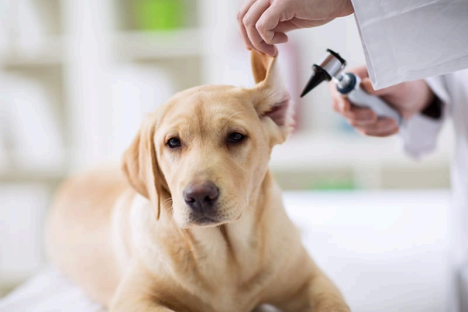Regular veterinary visits are essential for maintaining your pet’s health. Even if your pet seems healthy, many diseases can develop without early signs, making it crucial to catch these issues before symptoms become noticeable. Pet wellness exams and screening tests allow your veterinary team to identify potential issues before they advance, providing opportunities for early treatment and intervention. This proactive approach helps ensure your pet enjoys a long, healthy life by your side, preventing minor issues from becoming major, costly, or painful conditions.
Track Changes Over Time: While a single examination provides valuable insights, tracking findings over time offers even greater benefits. Trends or gradual changes may go unnoticed in day-to-day life but can signal underlying health problems. Annual check-ups enhance the chances of detecting subtle changes and potential health issues early. For senior pets, veterinarians may recommend bi-annual screenings, as older pets age more rapidly than humans and are more prone to developing chronic conditions. Early detection is especially important in this age group to maintain quality of life and manage age-related health concerns.
What to Expect During Your Pet’s Wellness Exam
- Weight Measurement
Your pet’s weight is recorded at each visit. Any significant changes, whether increases or decreases, will be discussed. Inform your veterinarian if you have been intentionally managing your pet’s weight through diet or exercise, as this will provide important context for interpreting the data.
- Vital Signs Check:
The veterinarian or veterinary tech will measure your pet’s temperature, pulse rate, and respiration rate. Regular monitoring helps establish baseline values and detect any deviations from the norm.
- Health History and Lifestyle Questions:
Expect your veterinarian to ask questions about your pet’s diet, lifestyle, behavior, and health history. This discussion helps tailor recommendations and treatments to your pet’s specific needs. It’s also your opportunity to mention any recent changes or concerns you’ve noticed, such as changes in eating habits, energy levels, or behavior. Your input provides important context that helps your veterinarian make informed decisions about your pet’s care.
- Full Physical Examination:
The veterinarian will perform a comprehensive exam that covers all key aspects of your pet’s physical health, including:
- Oral Exam: Checking teeth and gums for signs of dental disease, infection, or injury.
- Heart and Lungs: Listening to your pet’s heart and lungs with a stethoscope to detect abnormalities such as heart murmurs, arrhythmias, or respiratory issues.
- Eyes and Ears: Examining your pet’s eyes with an ophthalmoscope and ears with an otoscope to check for infections, injuries, or early signs of conditions such as cataracts or ear mites.
- Body Condition Scoring: Monitoring weight and overall condition.
- Lymph Nodes and Abdomen: Feeling the lymph nodes and abdomen allows the veterinarian to feel for any abnormalities such as swelling, lumps, or tenderness that could indicate underlying issue
- Rectal Exam: Checking for internal issues.
- Reflexes and Movement: Assessing motor function and detecting pain.
By covering all these areas, your veterinarian ensures that potential health issues are caught early, giving your pet the best chance at staying healthy and happy for years to come. Have any questions or want to schedule your pet’s wellness exam? We’re happy to help! You can contact us here or request an appointment online.


